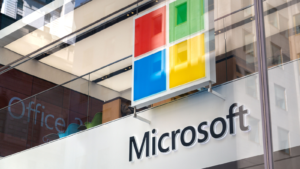The soft jobs report has fueled recession fears. As a result, several major Wall Street banks are calling for the U.S. Federal Reserve to lower its key interest rate by as much as 50 basis points in September, which could further impact the Magnificent 7 stocks.
Citi (NYSE:C) released a note indicating that the risk of a recession has led to a significant drop in two-year Treasury yields, reaching the lowest levels of the year. The market now expects rate cuts exceeding 75 bps this year.
Citi’s analysis points to a dovish stance by the Federal Reserve, suggesting that a series of 25bp cuts at each meeting could be likely, even in the event of a mild economic downturn. Should economic indicators worsen rapidly, Citi believes the Fed could opt for more aggressive cuts of 50bp at one or more meetings.
This data prompted several Wall Street banks to revise their expectations, with Bank of America (NYSE:BAC) now anticipating cuts in September and December, and reducing their terminal rate prediction by 25bp to a range of 3.25-3.5%.
Similarly, Evercore ISI also adjusted their forecast, acknowledging a realistic chance for a 50bp cut as early as September. The firm predicts that the Federal Reserve will likely implement rate cuts three times in 2024, aiming for a more proactive approach to ensure a soft economic landing.
Microsoft (MSFT)

Microsoft Corporation (NASDAQ:MSFT),one of the Magnificent 7 stocks, is a leading technology company known for its software products like Windows and Office, cloud computing services through Azure, and hardware such as Surface devices.
The company was recently spotlighted by Morgan Stanley (NYSE:MS) for its commanding presence in the Generative AI sector, backed by optimistic data from a recent 2Q24 Chief Information Officer (CIO) survey.
The survey revealed that Microsoft’s leadership in Generative AI is yielding considerable IT market share gains. Accordingly, Microsoft’s core spending growth expectations have risen to 6.6%, the highest since the second quarter of 2021. This growth is largely due to the company’s strong position in both Generative AI capabilities and its Azure Cloud platform.
The survey highlighted a robust adoption forecast, with 94% of CIOs anticipating the integration of Microsoft’s Generative AI products within the next year, a sharp increase from 63% in the fourth quarter of 2023 and 47% in the second quarter of the same year.
Microsoft 365 Copilot has emerged as the preferred choice, with 68% of CIOs planning its deployment, while Azure OpenAI Services is set to be utilized by 41%. The broader IT budget growth is also on an upward trajectory, with a projected increase of 3.5% for 2024, up from the previous quarter’s forecast. Software spending intentions have also seen a year-over-year rise to 3.6%.
Amazon (AMZN)

Amazon (NASDAQ:AMZN) is a global e-commerce and cloud computing giant. Known for its vast online retail marketplace, Amazon also offers AWS for cloud services, Kindle for e-readers, and Echo for smart home devices.
The e-commerce juggernaut reported adjusted earnings of $1.26 per share for the quarter ending June 30, surpassing the consensus estimate of $1.03. The company’s revenue for the quarter was $147.98 billion, marking a 10% year-over-year increase from $134.4 billion.
Despite this growth, Amazon’s stock declined due to its third-quarter revenue projection of $154-158.5 billion, which did not meet analyst expectations of $158.2 billion. However, Wall Street analysts remain bullish on Amazon stock as the business remains solid.
Bank of America, for instance, maintained a positive outlook on Amazon, citing AWS growth and retail margin expansion as key drivers. Piper Sandler (NYSE:PIPR), on the other hand, emphasized AWS’s strong performance despite weaker retail revenue and guidance for the third quarter.
Morgan Stanley pointed out that Amazon’s retail profits were affected by softer consumer trends and lower seller fees, which introduced some uncertainty. As one of the Magnificent 7 stocks, Amazon’s strong position in AWS due to IT budget re-acceleration and significant AI workloads led BMO Capital Markets to maintain an outperform rating and a top pick designation with a $230 target price.
Nvidia (NVDA)

Nvidia Corporation (NASDAQ:NVDA) is a pioneer in graphics processing units (GPUs) and artificial intelligence. Renowned for its powerful GPUs used in gaming, professional visualization, and data centers, Nvidia also advances autonomous vehicles and AI technologies.
Despite the recent selloff, Nvidia, one of the Magnificent 7 stocks, remains on track to become the first company to hit a market capitalization of $4 trillion. This optimistic forecast is fueled by the ongoing generative AI boom, which shows no signs of abating.
The transformative impact of the generative AI sector on Nvidia’s fortunes cannot be overstated. Industry forecasts from Bloomberg project that the generative AI market will expand at a compound annual growth rate (CAGR) of 42% over the next decade, potentially becoming a $1.3 trillion market by 2032.
Nvidia’s leading role in supplying AI chipsets positions it to be a key player in this burgeoning market. Despite some skepticism regarding the lasting impact of the generative AI craze, Nvidia has demonstrated solid fundamentals underpinning its recent success on Wall Street.
On the date of publication, Shane Neagle did not hold (either directly or indirectly) any positions in the securities mentioned in this article. The opinions expressed in this article are those of the writer, subject to the InvestorPlace.com Publishing Guidelines.
On the date of publication, the responsible editor did not have (either directly or indirectly) and positions in the securities mentioned in this article.
Shane Neagle is fascinated by the ways in which technology is poised to disrupt investing. He specializes in fundamental analysis and growth investing.








